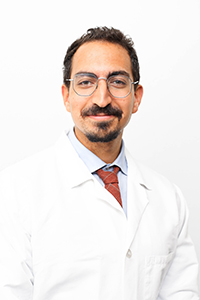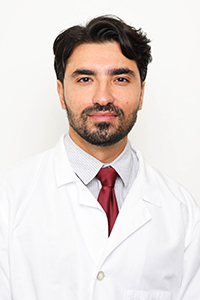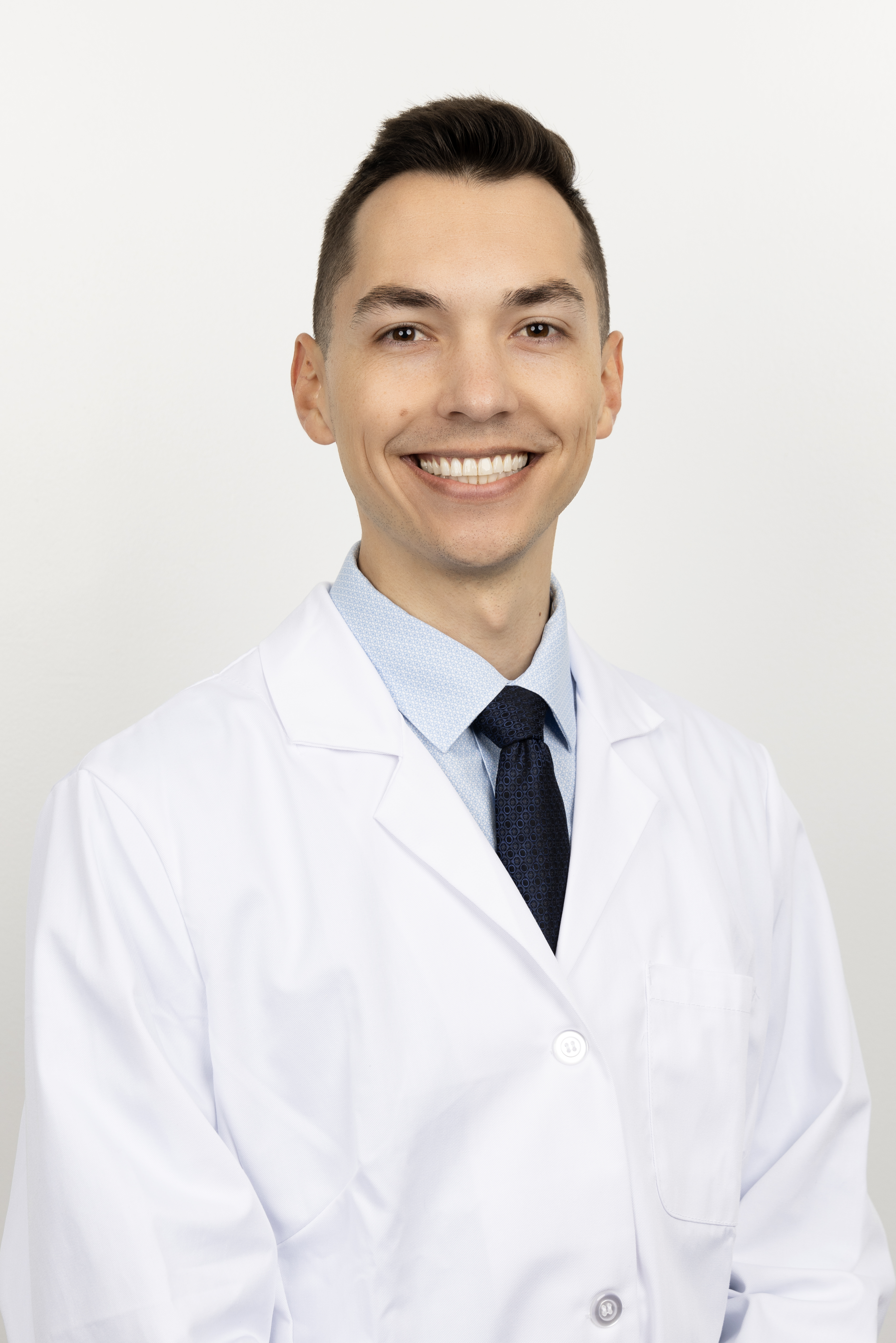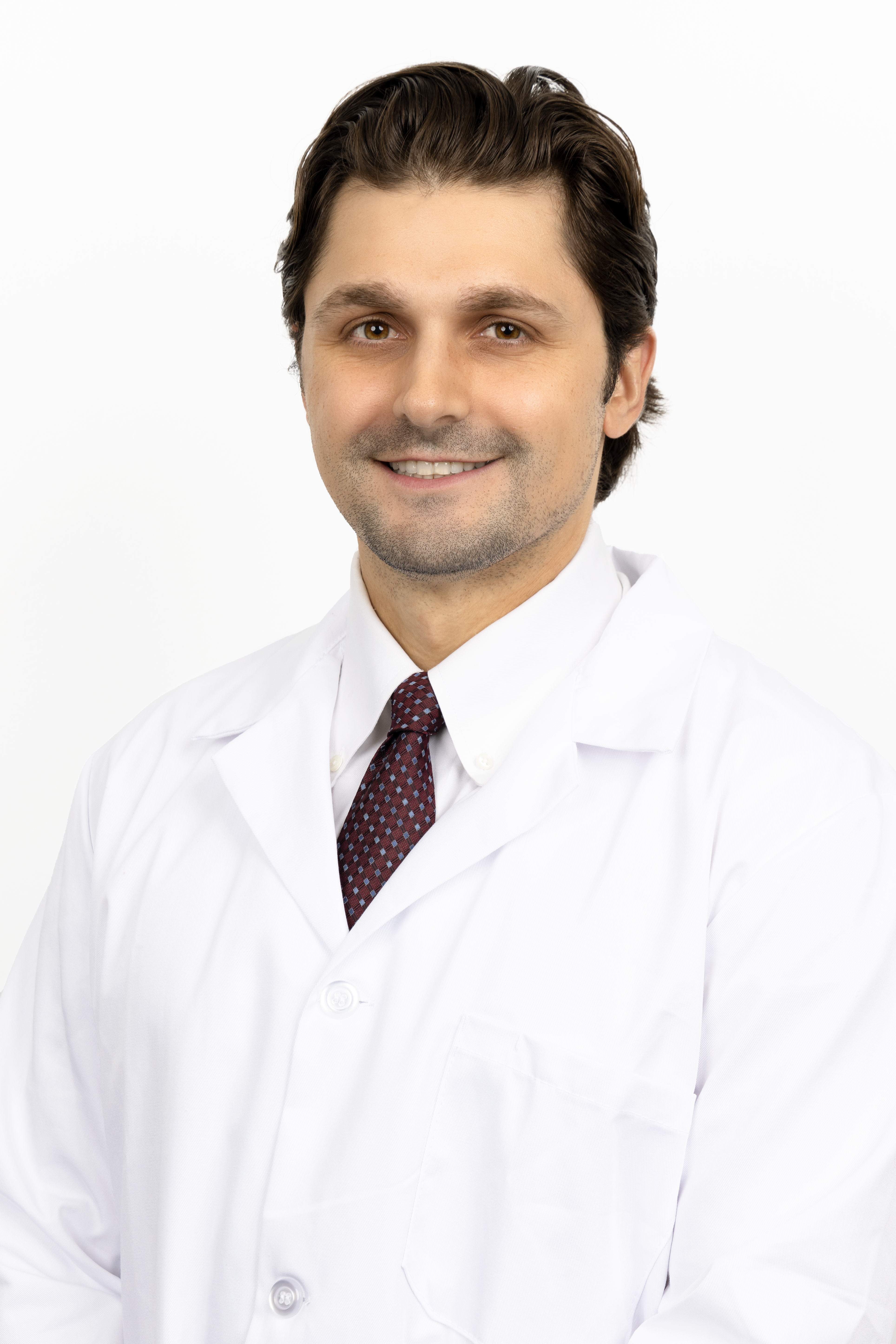Mission Statement
The mission of the Neurological Surgery Residency Program at Westchester Medical Center/New York Medical College is to provide the highest level of care to our patients within Westchester County and the Greater Hudson Valley through a learning environment dedicated to uncompromising patient care, a broad didactic and clinical experience, and comprehensive graduated residency responsibility.
Program Aims
The primary goal of the WMC/NYMC Neurological Surgery Residency Program is to provide residents with the training necessary to become thoughtful and community conscious leaders in this field through a rigorous clinical and educational experience that encompasses the breadth of Neurosurgery.
Program Overview and Curriculum
Overview
The Department of Neurosurgery at Westchester Medical Center/New York Medical College has been continuously accredited for 25+ years without any significant citations. Our last site visit was in 2012 and the program is fully accredited until 2022. As of July 1, 2020, we accept two residents per year for our seven-year training program. Our primary site is Westchester Medical Center and the adjacent Maria Fareri Children’s Hospital. Hackensack University Medical Center serves as a second training site.
Our faculty is composed of experts across all neurosurgical subspecialties. Each faculty member is fully committed to mentoring and teaching residents to achieve excellence in clinical and academic neurosurgery, which includes both clinical and basic science translational research. Our residency program is a seven-year program and the goal is to produce master surgeons at the end of the training period.
Below you will find an outline of each year throughout residency. We follow a 13-block schedule.
Clinical Rotations and Responsibilities
Internship: PGY 1
Neurosurgery residents are enrolled in the Neurosurgery Department from year one. The PGY1 year includes the following rotations:
- Two blocks of neurosurgery
- Three blocks of neurosciences, which are comprised of neurology, neuroradiology, neuropathology and neuro palliative care
- One block of anesthesiology
- One block of trauma surgery
- One block of vascular surgery
- One block of plastic surgery
- Four blocks of Neuro ICU
During the PGY1 year, the neurosurgery resident is responsible for the following:
-
Junior Resident call while rotating on neurosurgery, neurosciences, anesthesiology, and neuro-ICU services
- Attend the “SNS Intern Boot Camp Course.”
- ABNS Part 1 Examination for self-assessment.
- USMLE Step III exam and with a requirement to pass before November of PGY2 year.
Junior Resident: PGY2
The PGY2 year includes the following rotations:
- Seven/eight blocks of neurosurgery
- Two/three blocks of Neuro ICU
- Three blocks of Pediatric Neurosurgery
During the PGY2 year, the neurosurgery resident is responsible for the following:
- Junior Resident call
- Attend the “SNS Junior Boot Camp Course”
- ABNS Part 1 Examination for self-assessment
- ABNS Neuroanatomy Exam
Junior Resident: PGY3
The PGY3 year includes the following rotations:
- Seven blocks of Pediatric Neurosurgery
- Three blocks of Neurosurgery
- Three blocks of Endovascular Neurosurgery
During the PGY3 year, the neurosurgery resident is responsible for the following:
- Junior Resident call
- Attend the “Research Update in Neurosciences for Neurosurgery (RUNN) Course"
- Prepare Neurosurgery CQI and Neuro-Oncology Tumor Board
- ABNS Part 1 Examination for self-assessment
Junior/Senior Resident: PGY4
The PGY4 year includes the following rotations:
During the PGY4 year, the neurosurgery resident is responsible for the following:
- Mix of Junior and Senior Resident call
- ABNS Part 1 Examination for credit
Senior Resident: PGY5
The PGY 5 year includes the following rotations:
- Research
- Research options include:
- Neurosurgery Basic Science Lab under PI Meena Jhanwar-Uniyal, PhD
- Enfolded Endovascular or NCC Fellowship
- Off-site experience based on career goals
During the PGY 5 year, the neurosurgery resident is responsible for the following:
- Coordinate and run monthly research conference
Senior Resident: PGY6
The PGY 6 year includes the following rotations:
- Senior Resident at WMC
- Hackensack University Medical Center
During the PGY 6 year, the Neurosurgery resident is responsible for the following:
Senior Resident: PGY7
The PGY 7 year includes the following rotations:
- Chief Resident at WMC
- Chief Resident at Hackensack University Medical Center
During the PGY 7 year the Neurosurgery resident is responsible for the following:
- Senior Resident call
- Administrative oversight of neurosurgery service, both clinical and academic
Educational Curriculum
Our didactics are comprised of the following conferences:
- Weekly: Chief of Service Rounds, Reperfusion Conference, Multidisciplinary Epilepsy Conference & Multidisciplinary Spine Surgery Case Conference
- Biweekly: Adult Neuro-Oncology Tumor Board, Pediatric Neuro-Oncology Tumor Board, Resident Clinic, Neuroendovascular Didactics & NICU Rounds
- Monthly: Resident Case Conference, Neurosurgery Grand Rounds, Indications Conference, Research Meeting, Continuous Quality Improvement (M&M), Critical Care Grand Rounds, Resident Focused Topic Review, Multidisciplinary Spine Conference, Spine Didactics, Peripheral Nerve Case Conference, Journal Club, SANS Board Review, Faculty Lunch Series, Program Director/Resident Meeting, Functional Neurosurgery Conference
- Six times/year: Joint Cerebrovascular Conference & Multidisciplinary Neurosurgery Conference
- Annually: Endovascular Simulation Course, Mock Oral Boards, Stryker Mobile Lab, Kasoff-Murali Lecture & PGY 1 NYMC Simulation
Our curriculum was created in an effort to feature the breadth of knowledge which should be attained by an individual completing residency training in Neurosurgery. The specific structure of resident education in Neurosurgery is defined by the American Board of Neurological Surgery (ABNS). Our curriculum is designed as a three-year cycle meant to aid our faculty, residents and allied health practitioners in their continued medical education and covers many neurosurgical topics, including trauma, spine, vascular, epilepsy/functional, pediatrics, tumors, neuropathology, neuroradiology and more.
Research and Clinical Trials
The Department of Neurosurgery is involved in basic science and clinical research as well as a growing array of clinical trials. To take full advantage of these opportunities, residents are encouraged in the early years of training to identify areas of interest and collaborating research mentors. Through a systematic curriculum focused on biostatistics and research design, our trainees learn the critical skills required to pursue increasingly sophisticated research projects. Additionally, with the on-going formation of research cores dedicated to epidemiology, biostatistics, tech transfer, and molecular science at New York Medical College, the spectrum of research opportunities is rapidly expanding.
The WMC Neurosurgery clinical faculty perform diverse research within their respective specialties. Currently, cutting edge research includes the study of surgical outcomes and risk factor stratification in the areas of cerebrovascular disease, spinal cord injury, pediatric neurosurgery, traumatic brain injury, peripheral nerve disease, neurosurgical oncology, and neuro-critical care. This rapidly growing research effort is supported by a full-time research and trials coordinator and also provides critical research opportunities for nearly 30 medical students annually. The addition of a mandatory monthly research meeting, coupled with an intense focus by both the faculty and trainees towards advancing the science of neurosurgery has resulted in a dramatic increase in departmental academic output over the past three years.
During the PGY-5 year, our residents can also choose to pursue a year of dedicated research in our Neurosurgery Basic Science Laboratory under the mentorship of Dr. Meena Jhanwar-Uniyal, who has been an integral aspect of education for our trainees over many years. Under Dr. Jhanwar’s guidance, residents are educated in translational and regenerative medicine, with unique hands-on training in laboratory research. Areas of research include the molecular genetics of glioblastoma, medulloblastoma and metastatic brain tumors as well as spinal cord injury. Previous residents in the lab have received prestigious awards, such as the Van Wagenen Fellowship, the Charles Kuntz Scholar Award and numerous New York State and New York City research awards. Additionally, work in the lab has also resulted in many high impact publications, oral presentations at both national and international meetings, and prestigious post-residency fellowships for participating residents.
Current and Past Residents
Current Residents: 2023-2024
 Alan Stein, MD
Alan Stein, MD
NS6
Medical School: Florida Atlantic University
Alan was born in Philadelphia and raised in Boca Raton, FL, and attended Florida Atlantic University, where he graduated Summa Cum Laude, earning a B.S. in Biology. While at FAU Alan was an active member of Alpha Epsilon Pi fraternity. He was granted an M.D. from Florida Atlantic University and was inducted as a member into Alpha Omega Alpha Medical Honor Society. He went on to complete his intern year in General Surgery at the University of Florida in Gainesville, FL. In his spare time, Alan enjoys spending time with his family and dogs, weight lifting, and fishing. His interests in Neurosurgery include neuro-oncology and complex spine.

Nitesh Damodara, MD
NS5
Medical School: Rutgers New Jersey Medical School
Nitesh received his medical degree from Rutgers New Jersey Medical School where his interest in neurosurgery started early with an emphasis on vascular research focusing on aneurysmal subarachnoid hemorrhage and computational fluid dynamics. Born and raised in Bergen County, New Jersey, he went to Washington and Jefferson College in Pennsylvania for a degree in neuroscience with a minor in mathematics. At the time he was also on the editorial board for the university newspaper and then worked as a freelance editor for medical journals. In his free time, Nitesh enjoys playing guitar and recording music. He also enjoys motorsport and taking his car on to the track.

Monica Mureb, DO
NS4
Medical School: New York Institute of Technology COM
Monica was born and raised in Westchester County, NY. She attended the College of Arts and Sciences at New York University where she majored in Neural Science and graduated with University Honors. She then received her degree in osteopathic medicine at New York Institute of Technology COM, during which she completed a research fellowship in the Department of Neurosurgery at NYU Langone Health under the mentorships of Drs. Douglas Kondziolka and Howard Riina. Her interests within neurosurgery include open and endovascular neurosurgery and stereotactic radiosurgery
 Sabrina Zeller, MD
Sabrina Zeller, MD
NS4
Medical School: Rutgers Robert Wood Johnson Medical School
Sabrina was born and raised in New Jersey. She attended Duke University, where she graduated with distinction in Chemistry with a concentration in Biochemistry and a minor in Psychology. She then returned to New Jersey for medical school at Rutgers Robert Wood Johnson Medical School, where she was elected to AOA. Sabrina’s hobbies include hiking, playing the piano, and playing with her pet cat. Her interests in neurosurgery are broad but include skull base surgery and neuro-oncology.
 Austin Carpenter, MD
Austin Carpenter, MD
NS3
Medical School: Georgetown University School of Medicine
Austin is from New Jersey and completed his undergraduate degree in Spanish Studies from Duke University and the Master of Management Studies program at Duke’s Fuqua School of Business. He then joined Hai Yan’s laboratory at Duke’s Preston Robert Tisch Brain Tumor Center for three years to investigate molecular genetics and molecular classification of gliomas. Austin then received a M.S. in Physiology and Biophysics and his M.D. from Georgetown University. As a medical student, he was awarded the Medical Student Summer Research Fellowship from the Neurosurgical Education Research Foundation to investigate oncolytic viruses for gliomas. His interests in neurosurgery include neuro-oncology, spine, pediatrics, and functional. Austin also enjoys spending time with his family, cycling, triathlons, and playing chess.
 Ilya Frid, MD
Ilya Frid, MD
NS3
Medical School: Geisinger Commonwealth School of Medicine
Ilya grew up in Seattle, Washington and attended Seattle Pacific University where he earned his B.S. in Physiology while earning multiple academic and leadership awards. He went on to receive his M.S. In Physiology and Biophysics from Georgetown University. Ilya received his M.D. from Geisinger Commonwealth School of Medicine. His clinical interests include neuro-oncology, minimally invasive spine, and complex spinal reconstruction. Outside of the hospital, Ilya enjoys playing the piano, exploring the outdoors, finding inspiration from culinary arts, and spending time with his family and friends.
 Eric Feldstein, MD
Eric Feldstein, MD
NS2
Medical School: New York Medical College
Eric is from New York City and obtained his Bachelor's degree studying Neuroscience and Behavior at Columbia University. He then joined Adam Sonabend’s Laboratory at Northw Western University for one year to investigate the use of epigenetic modifying agents in glioma cell lines, such as the topoisomerase poison etoposide, for potential treatment of glioblastoma. He obtained his MD studying at New York Medical College. After graduating medical school Eric spent a year working as the inaugural research fellow at the Brain and Spine Institute at Westchester Medical Center managing the department’s clinical trials including a Department of Defense funded study on the use of transcranial doppler ultrasound for the non-invasive measurement of intracranial pressure in neurocritical care patients. His interests in neurosurgery include endovascular, pediatrics, and neuro-oncology. Eric also enjoys playing the piano, studying history, solving crosswords, running, and chess.
 Sauson Soldozy, MD
Sauson Soldozy, MD
NS2
Medical School: University of Virginia School of Medicine
Sauson grew up in Ashburn, VA. He attended the University of Virginia for college double majoring in Neuroscience and Chemistry, graduating Phi Beta Kappa with Highest Distinction for his thesis on arterial spin labeling and cerebral blood flow changes after sub-concussion in collegiate athletes. He remained at UVA for medical school, publishing over 35 papers and book chapters, while conducting basic science work exploring intra-arterial mitochondrial injection to reduce infarct burden in a mouse model of ischemic stroke. In addition to his passion for neurosurgery, he loves teaching and mentorship. His interests in neurosurgery include neuro-oncology, skull base, and spine. In his free time, he enjoys weight lifting, swimming, and working on cars.
 Shaye Busse, MD
Shaye Busse, MD
NS1
Medical School: University of Central Florida College of Medicine
Shaye was born and raised in Phoenix, AZ. He attended UCLA where he earned a B.S. with dual majors in Neuroscience and Physiological Science, while also competing on the school’s rowing team. He then went to the University of Central Florida College of Medicine, where he was selected for Alpha Omega Alpha honors while earning his M.D. degree. His interests in neurosurgery include neuro-oncology, skull base, cerebrovascular, and pediatrics. In his free time, Shaye enjoys various sports including beach volleyball, soccer, and running, spending time with family and friends, and trying new foods.
 Cameron Rawanduzy, MD
Cameron Rawanduzy, MD
NS1
Medical School: New York Medical College
Cameron was born and raised in New York. He attended Trinity College in Hartford, Connecticut where he received his B.A in Economics. Cameron returned home and went on to receive his M.S in biomedical sciences and M.D from New York Medical College. He spent a year at the University of Utah in Salt Lake City, Utah conducting research into open cerebrovascular and skull-base operative techniques and outcomes under the mentorship of Dr. William T. Couldwell. His interests in neurosurgery include tumor and complex and minimally invasive spine. Outside of the hospital, Cameron enjoys hiking, snowboarding, trail running, and cooking for his family and friends.
Alumni
Jared Cooper, MD (2023)
Fellowship: Endovascular Neurosurgery, WMC
Tolga Sursal, MD (2022)
Fellowship: University of Virginia, Spine Surgery
Current Position: Senara Martha Jefferson Hospital, Charlottesville, VA
Michael Kim, MD (2021)
Fellowship: University of California, Irvine, Skull Base Surgery
Current Position: Assistant Clinical Professor, UCI and Practice in Long Beach, CA
John Wainwright, MD (2021)
Fellowship: Thomas Jefferson University Hospital, Philadelphia, Complex Spine Surgery
Current Position: Westchester Medical Center, Valhalla, NY
Anubhav Amin, MD (2020)
Fellowship: Memorial Sloan Kettering Cancer Center, Neurosurgical Oncology
Current Position: Assistant Professor, University of Washington, Seattle, WA
Arthur Wang, MD (2018)
Fellowship: Columbia University, Endovascular Surgery
Current Position: Assistant Professor of Neurosurgery, Tulane University, New Orleans, LA
Jennifer Ronecker, MD (2018)
Fellowship: Barrow Neurological Institute at Phoenix Children's, Pediatric Neurosurgery
Current Position: Phoenix Children’s Hospital, Phoenix, AZ
John Gillick, MD (2016)
Fellowship: Thomas Jefferson University Hospital, Philadelphia, Complex Spine Surgery
Current Position: Assistant Professor of Neurosurgery, Rutgers New Jersey Medical School, Newark, NJ
Craig Shannon, MD (2016)
Michael LaBagnara, MD (2015)
Fellowship: The University of Virginia, Complex Spine Surgery
Current Position: Semmes Murphey Clinic, Memphis, TN
Dhruve Jeevan, MD (2014)
Fellowship: The Hospital for Sick Children, Toronto, Ontario, Canada
Current Position: St. David’s HealthCare, Austin, TX
Jayson Neil, MD (2014)
Fellowship: University of Utah, Skull-Base Surgery
Current Position: HCA Midwest Health, Kansas City, MO
Ryan Ormond, MD, PhD (2012)
Fellowship (2012): Emory University, Neuro-Oncology
Fellowship (2013): William Van Wagenen Fellowship, University of Bonn
Current Position: Assistant Professor of Neurosurgery, University of Colorado, Aurora, CO
Ladislau Albert, MD (2011)
Current Position: Practice in San Antonio, Texas
Amrith Jamoona, MD (2009)
Fellowship: University of Indiana, Endovascular Neurosurgery
Current Position: Sutter Health, Sacramento, CA
Ibrahim Omeis, MD (2008)
Fellowship: Johns Hopkins, Complex Spine Surgery and Spine Oncology
Current Position: Assistant Professor of Neurosurgery, Baylor University, Waco, TX
Avinash L. Mohan, MD (2007)
Fellowship: Children's Memorial Hospital, Chicago, IL, Pediatric Neurosurgery
Current Position: Brain and Spine Surgeons of NY, White Plains, NY
Mark Hornyak, MD (2006)
Fellowship: University of Utah, Skull Base Surgery
Current Position: Associate Professor of Neurosurgery, Wayne State University, Detroit, MI
Virany Huynh Hillard, MD (2005)
Fellowship: University of Utah, Spine Surgery
Current Position: Brain and Spine Surgeons of NY, White Plains, NY
Joseph DeMattia, MD (2004)
Fellowship: Memorial Sloan-Kettering, Neuro-Oncology
Current Position: Assistant Professor of Neurosurgery, New York Medical College, Valhalla, NY
Chiedozie Nwagwu, MD (2003)
Fellowship: Methodist Hospital and Indiana Neurosurgery Group, Endovascular Neurosurgery
Current Position: University of California, Irvine, Director of Cerebrovascular Surgery
Joshua Rosenow, MD (2002)
Fellowship: Cleveland Clinic, Pain and Functional Neurosurgery
Current Position: Northwestern University School of Medicine, Director of Stereotactic and Functional Neurosurgery
Craig Goldberg, MD (2001)
Current Position: St. Peter’s Health Partners, Latham, NY
Kaushik Das, MD (1999)
Fellowship: Barrow Neurological Institute, Spine Surgery
Current Position: Brain and Spine Surgeons of NY, White Plains, NY
Michael Hahn, MD (1998)
Current Position: Practice in Kingston, NY
Roxanne Todor, MD (1997)
Current Position: NYC Health and Hospitals-Jacobi, Bronx, NY
John McNulty, MD (1997)
Current Position: Practice in Hudson, NY
Amed Rawanduzy, MD (1996)
Current Position: Practice in New Rochelle, NY